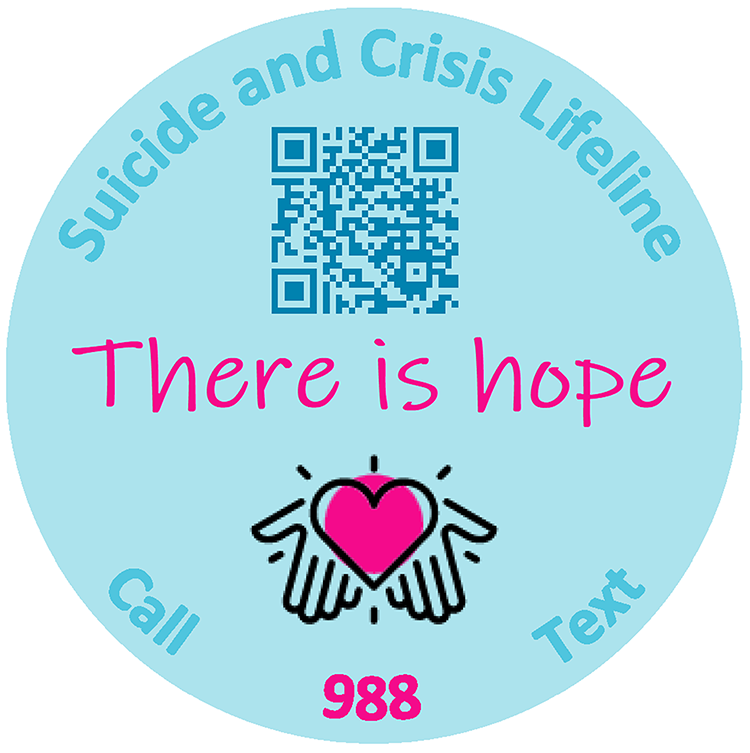
Mental health advocates are celebrating the launch of the of the 988 National Suicide Prevention Lifeline which provides 24/7 access to trained crisis counselors who can help people experiencing mental health and substance abuse related distress.
As members of the Northwood’s Community, Outreach, Prevention, and Education (COPE) Coalition, Aspirus Eagle River Hospital, Aspirus Rhinelander Hospital and Howard Young Medical Center, Woodruff is helping raise awareness of 988 with a community sticker campaign.
Nearly 30 businesses, school districts and organizations in Forest, Oneida and Vilas counties are part of a campaign to connect people who may have thoughts or know someone who has thoughts of suicide with resources to get help.
“Suicide is connected with tremendous grief and loss that affects individuals, families, and communities. Suicide is also a complex issue that involves many factors that can increase risk factors,” stated Jason Dailey, Oneida County Assistant Veterans’ Service Officer and creator of the 988-sticker used in this campaign. “This is why the coalition feels that sharing the 988 number is so important.”
It's also important to be aware of the differences between risk factors and warning signs to help someone who may be thinking about suicide or has a plan in place.
“People might not be comfortable asking the question or getting the person the help they may need, but they could help connect them to someone they trust. This may be a pastor or priest, their health care provider, a mental health provider or a close family member or friend,” added Heidi Pritzl, a licensed clinical social worker with Aspirus Koller Behavioral Health. “Sometimes making that first moment of contact can be difficult, especially if it’s to get professional help, but a simple offer to help to connect in whatever way you’re comfortable can make the difference.”
Northwoods COPE addresses mental health and substance use concerns in Forest, Oneida, and Vilas counties. The group is made up of community partners that include school districts, health care, private mental health providers, veteran’s services, local health departments, and UW-Extension.